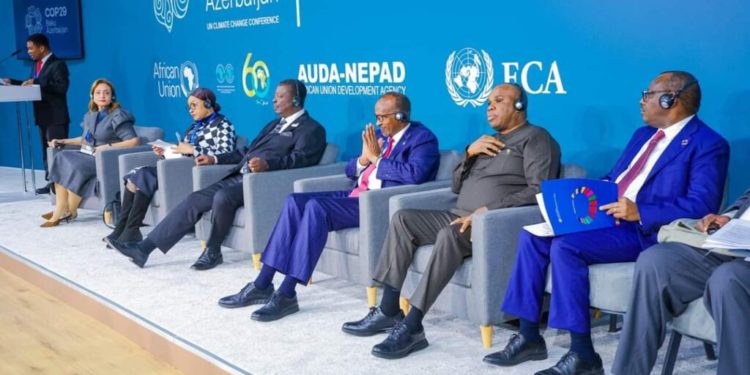Kenya’s steps demonstrate the urgency and innovation that climate action demands, but they also highlight an imbalance in responsibility. Developed countries have long promised financial support to aid developing nations in their green transitions — most recently pledging $100 billion annually. However, they have routinely fallen short, only meeting this goal in 2022, two years late and largely through loans rather than grants. Now, as climate talks demand even higher funding goals, wealthy nations are reluctant to commit without conditions, and discussions stall over disagreements that sideline the real stakes of climate action.
Duale’s waste segregation initiative, which requires Kenyans to sort their trash into organic, recyclable, and hazardous waste, is a commendable step toward addressing Nairobi’s mounting waste crisis. With designated material recovery facilities and strict enforcement, this plan could reduce pollution, improve public health, and revitalize Nairobi River, one of the city’s most polluted waterways. As part of Kenya’s shift to a circular economy, this initiative seeks to minimize waste and recycle resources — goals that align with the global climate agenda.
While this might seem like a small local step, it sends a message: Kenya is willing to take serious measures to address environmental issues. It also raises an important question — why should countries like Kenya, already burdened by climate change impacts, carry such responsibilities without adequate financial support from those most responsible for global emissions?
Prime Cabinet Secretary Musalia Mudavadi’s Nairobi Declaration underscores this need for support. This African-led call to action urges wealthy countries to meet their climate finance obligations, expand renewable energy investments, and support resilience in the Global South. Through the Accelerated Partnership for Renewables in Africa (APRA) and Mission 300, African countries have made strides in expanding clean energy access, empowering rural communities, and reducing reliance on fossil fuels. However, the declaration makes clear that Africa cannot accomplish these goals alone. Africa contributes less than 4% of global greenhouse gas emissions but bears a disproportionate share of the impacts, from severe droughts to extreme storms.
Yet, at COP29, wealthy nations balk at the thought of meaningful financial commitments. While climate change threatens Kenya’s economic stability, especially in sectors like agriculture and real estate where non-performing loans are rising due to project delays and high operational costs, the same wealthy nations that demand climate action continue to sidestep the financial accountability they committed to in the Paris Agreement.
The request for $1 trillion annually in climate finance for developing nations by the end of the decade reflects the scale of the climate challenge. Yet, the target remains a distant promise at COP29, with wealthy countries hesitating over financing mechanisms, reluctant to exceed their previous commitments, and divided over the role of emerging economies like China. Additionally, while proposals such as taxing polluting industries (aviation, fossil fuels, shipping) gain traction, these measures remain a long way from realization.
The disconnect is glaring: as Kenya and other developing nations face immediate climate impacts, global negotiators remain mired in bureaucratic delays, political posturing, and conditional promises. Meanwhile, countries like Kenya bear the burden of immediate action on climate mitigation and adaptation without the financial support to back it up.
Kenya’s recent initiatives showcase what developing countries can achieve with leadership and vision, but they cannot — and should not — go it alone. Wealthy nations must step up, not only to honor the $100 billion annual pledge but to increase climate finance support in grants, not just loans, allowing countries to build sustainable economies without accumulating unsustainable debt. The stalled negotiations at COP29 serve as a reminder that global climate leadership is needed now more than ever, and empty promises will only deepen the injustice of climate impacts disproportionately borne by the Global South.
If wealthier nations fail to act, the world risks missing a vital opportunity to support real climate resilience in countries like Kenya, where localized efforts are already making a tangible difference. As global climate impacts worsen, these divides will only grow starker, and the cost of inaction will multiply. By investing in climate finance now, wealthy nations can prevent greater financial and human costs in the future, supporting a global transition to sustainability where no country is left behind.

















